秒词邦
分题型分考点背单词 文
文 文
文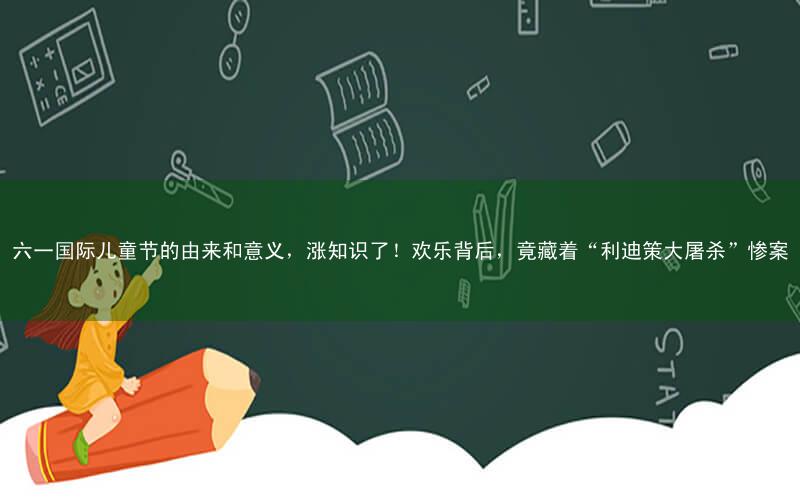
原文:
六一国际儿童节的由来和意义,涨知识了!欢乐背后,竟藏着“利迪策大屠杀”惨案
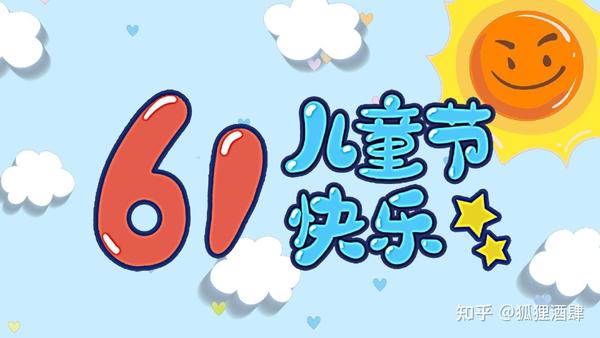
百度|
每当六月的第一天来临,全世界的小朋友们都会欢天喜地地庆祝属于自己的节日——六一国际儿童节。
这个充满欢声笑语的节日,不仅是孩子们童年回忆中的一部分,更承载着深远的历史意义。今天,就让我们一起来探寻六一儿童节的由来,了解它背后的故事,以及它对于我们的意义吧!
六一国际儿童节的起源,与一段悲惨的历史事件紧密相连。
那是在第二次世界大战期间,1942年6月10日,德国法西斯对捷克斯洛伐克的利迪策村进行了惨无人道的屠杀。
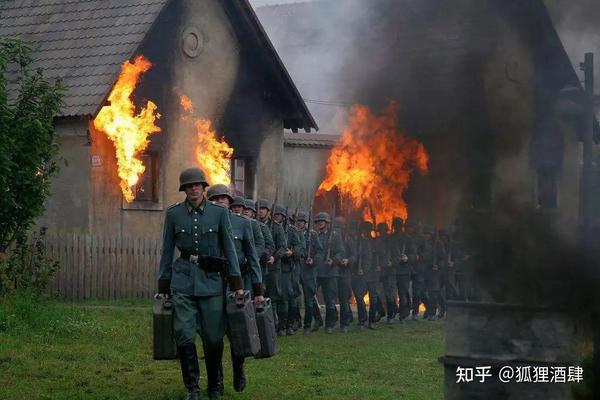
利迪策大屠杀,剧照|
他们枪杀了村中16岁以上的男性公民140余人和全部婴儿,并把妇女和90名儿童押往集中营。
这个村子里的房舍、建筑物都被烧毁,一个原本宁静的村庄在战火中化为灰烬。
这场悲剧,仅仅是二战中无数儿童苦难的一个缩影。
在战争结束后,世界各地经济陷入萧条,成千上万的工人随之失业,小孩子们的生活更是雪上加霜。
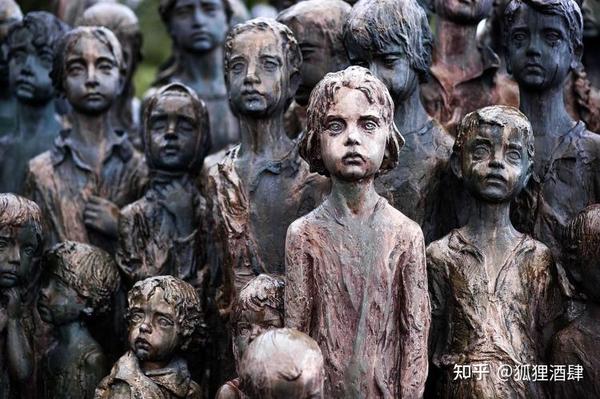
欧洲二战利迪策惨案,百度|他们中有的因感染传染病而去世,有的被迫成为童工,受尽生活的折磨。
在这样的背景下,为了悼念利迪策惨案和全世界所有在战争中死难的儿童,反对虐杀和毒害儿童,以及保障儿童权利。
在1949年11月,国际民主妇女联合会在莫斯科召开理事会议。
中国和其他国家的代表愤怒地揭露了帝国主义分子和各国反动派残杀、毒害儿童的罪行。
此次会议决定以每年的6月1日为国际儿童节,以此来保障世界各国儿童的生存权、保健权和受教育权,改善儿童的生活,并致力于反对虐杀儿童和毒害儿童。
这个决定得到了世界上许多国家的响应和支持,特别是社会主义国家。
于是,世界上许多国家都将6月1日定为儿童的节日,尤其是在社会主义国家。
尽管在欧美国家,儿童节的日期各不相同,且往往很少举行社会公众性的庆祝活动,但六一国际儿童节的影响力随着时间发展在全球范围内的影响力不断扩大。
值得一提的是,中国在儿童节的确立上也有着自己的历史。
在新中国成立前,中国的儿童节是每年的4月4日。这个节日最初是由“上海中华慈幼协会”在1931年提议设立的。
然而,在新中国成立后,中央人民政府政务院于1949年12月23日规定,将中国的儿童节与国际儿童节统一起来,定为每年的6月1日。
这一改变,不仅体现了中国政府对儿童权益的高度重视,也使中国的儿童们能够与世界各地的儿童们一同庆祝这个属于他们自己的节日。
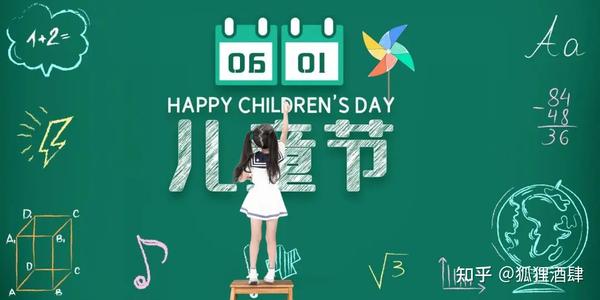
百度|
六一国际儿童节的意义也远不止于庆祝和欢乐。
它更是一个关注儿童权益和保护的重要日子。
在这一天,社会各界都会思考如何为孩子们创造更好的成长环境,提供更多的教育资源和医疗保健服务。
许多非政府组织和慈善机构也会借此机会举办各种公益活动,呼吁人们关注儿童问题,为改善儿童的生活状况贡献力量。
此外,六一儿童节还是孩子们童年回忆中不可或缺的一部分。
在这一天,学校会组织丰富多彩的活动,如文艺表演、游戏竞赛等,让孩子们在欢乐中度过这个特殊的日子。
这些活动不仅增强了孩子们的团队合作精神和自信心,还让他们在快乐中学习到友谊、分享和尊重他人的重要性。
总的来说,六一国际儿童节不仅是一个庆祝的节日,更是一个充满教育意义的日子。
这个节日提醒我们关注儿童的成长需求,保障他们的权益,为他们创造一个安全、快乐、充满希望的成长环境。在这个充满童趣的日子里,让我们共同为孩子们的未来而努力,让他们的童年充满阳光和欢笑。
如今,每当我们提起六一儿童节,心中也总会涌起一份温暖和怀念。
因为这个节日见证了我们每个人的成长,也承载了我们对美好未来的期盼。让我们珍惜这份美好的回忆,同时也为下一代创造一个更加美好的童年。因为无论时代如何变迁,孩子们纯真无邪的笑容始终是我们最宝贵的财富。
在这个六一国际儿童节来临之际,愿所有的孩子们都能拥有一个快乐、健康的童年!
也愿我们每一个人都能永远保持一颗童心,用善良和纯真去面对生活的挑战和困难。
最后,祝全世界的儿童们节日快乐!
译文:
The origin and significance of International Children's Day on June 1st have expanded our knowledge! Behind the joy lies the tragedy of the Lidice Massacre
Whenever the first day of June approaches, children all over the world celebrate their own festival with joy - International Children's Day on June 1st.
This festival full of laughter and joy is not only a part of children's childhood memories, but also carries profound historical significance. Today, let's explore the origin of International Children's Day, understand the story behind it, and its significance for us!
The origin of International Children's Day on June 1st is closely linked to a tragic historical event.
That was during the Second World War, on June 10, 1942, German fascists carried out a brutal massacre in the village of Lidice in Czechoslovakia.
They shot and killed more than 140 male citizens over the age of 16 and all infants in the village, and took women and 90 children to concentration camps.
The houses and buildings in this village were burned down, and a once peaceful village was reduced to ashes in the flames of war.
This tragedy is just a microcosm of the suffering of countless children during World War II.
After the war ended, economies around the world fell into recession, causing thousands of workers to lose their jobs and worsening the lives of children.
The European World War II Lydice tragedy, Baidu | Some of them died due to infection with infectious diseases, some were forced to become child laborers, suffering from the torment of life.
In this context, in order to mourn the Lidice tragedy and all the children who died in war around the world, oppose the killing and poisoning of children, and safeguard their rights.
In November 1949, the International Democratic Women's Federation held a council meeting in Moscow.
Representatives from China and other countries angrily exposed the crimes of imperialists and reactionaries in various countries who massacred and poisoned children.
This conference has decided to designate June 1st as International Children's Day every year, in order to safeguard the rights of children to survival, health, and education in countries around the world, improve their lives, and strive to oppose the killing and poisoning of children.
This decision has received response and support from many countries around the world, especially socialist countries.
Therefore, many countries around the world have designated June 1st as a children's holiday, especially in socialist countries.
Although the dates of Children's Day vary in European and American countries, and there are often few public celebrations, the influence of International Children's Day on June 1st continues to expand globally over time.
It is worth mentioning that China also has its own history in establishing Children's Day.
Before the establishment of the People's Republic of China, Children's Day was celebrated on April 4th every year. This festival was originally proposed by the Shanghai Chinese Kindergarten association in 1931.
However, after the establishment of the People's Republic of China, the State Council of the central People's government stipulated on December 23, 1949, to unify China's Children's Day with International Children's Day and set it as June 1st every year.
This change not only reflects the Chinese government's high attention to children's rights, but also enables Chinese children to celebrate this festival together with children from all over the world, which belongs to them.
The significance of International Children's Day on June 1st goes far beyond celebration and joy.
It is also an important day to pay attention to the rights and protection of children.
On this day, all sectors of society will think about how to create a better growth environment for children, provide more educational resources and healthcare services.
Many non-governmental organizations and charitable organizations also take this opportunity to organize various public welfare activities, calling on people to pay attention to children's issues and contribute to improving their living conditions.
In addition, International Children's Day is an indispensable part of children's childhood memories.
On this day, the school will organize a variety of activities, such as artistic performances, game competitions, etc., to allow children to spend this special day in joy.
These activities not only enhance children's teamwork spirit and self-confidence, but also enable them to learn the importance of friendship, sharing, and respecting others in happiness.
Overall, International Children's Day on June 1st is not only a celebrated holiday, but also a day full of educational significance.
This festival reminds us to pay attention to the growth needs of children, protect their rights, and create a safe, happy, and hopeful growth environment for them. On this day full of childlike fun, let us work together for the future of children, making their childhood full of sunshine and laughter.
Now, whenever we mention International Children's Day, there is always a warm and nostalgic feeling in our hearts.
Because this festival witnesses the growth of each and every one of us, and also carries our expectations for a better future. Let us cherish this beautiful memory and also create a better childhood for the next generation. Because no matter how times change, children's innocent and innocent smiles are always our most precious wealth.
On this International Children's Day, may all children have a happy and healthy childhood!
May each of us always maintain a childlike heart and face the challenges and difficulties of life with kindness and purity.
Finally, I wish children all over the world a happy holiday!
句子分析1:
let's explore the origin of International Children's Day, understand the story behind it, and its significance for us!
句子成分分析:
(提示: 读句时出现中断。(原因))
let's explore the origin (of International Children's Day),
understand the story [behind it], || and its significance (for us)!
句子语法结构详解:
(children 为 child 的复数形式。let's = let us)
* 开头为祈使句。
* let 为谓语。
* explore 为不带 to 的不定式,作宾语补足语(或称复合宾语)。
* understand 开头为祈使句。
* understand 为谓语。
* its 为物主代词。us 为人称代词宾格。Children's 为名词所有格。the 为定冠词。
相关语法知识:
 祈使句
祈使句
 复合宾语
复合宾语
 不定式
不定式
 人称代词 | 名词所有格 | 物主代词
人称代词 | 名词所有格 | 物主代词
句子相关词汇解释:
Vocabulary:
| let [let] | vt. | 1) 让,允许 2) 准许,许可,同意 |
| explore [ik'splɔ:] | vt. | 1) 探索,勘探,探险 2) 探究,探讨 |
| origin ['ɔridʒin] | n. | 1) 起源,源头,起因 2) 身世,出身 |
| international [,intә'næʃәnәl] | a. | 国际的 |
| child [tʃaild] | n. | 1) 小孩 2) 儿女 |
| day [dei] | n. | 1) 天, 一日,一天 2) 白天,日间 3) 时代;时期 |
| understand [,ʌndә'stænd] | vt. | 1) 懂,明白 2) 了解,理解 |
| story ['stɔ:ri] | n. | 1) (虚构的)故事,小说等 2) (真实情况或对往事的)口述,叙述、新闻报道 3) [美](=storey)楼层 |
| behind [bi'haind] | prep. | 1) 在...后面, 在...背面 2) 落后于 |
| its [its] | a. | 它的 |
| significance [sig'nifikәns] | n. | 1) 意义,重要性 2) 含义,意义 |
句子语法错误检查:
(未发现错误)
句子分析2:
Representatives from China and other countries angrily exposed the crimes of imperialists and reactionaries in various countries who massacred and poisoned children.
句子成分分析:
Representatives (from China and other countries) angrily exposed the crimes (of imperialists and reactionaries) [in various countries] (who massacred and poisoned children).
句子语法结构详解:
(children 为 child 的复数形式。)
* exposed 为谓语,采用一般过去时。
* who 为关系代词,引导定语从句。
* massacred 为谓语,采用一般过去时。
* poisoned 为谓语。
* the 为定冠词。
相关语法知识:
 并列连词
并列连词
 时态
时态
 定语从句
定语从句
 other, another 的用法
other, another 的用法
句子相关词汇解释:
Vocabulary:
| representative [,repri'zentәtiv] | n. | 1) 代表 2) 销售代表,销售代理,代销人 |
| China ['tʃainә] | n. | 中国 |
| and [ænd] | conj. | 1) 和, 与, 同, 并 2) 然后,接着 |
| other ['ʌðә] | a. | 1) 其他的, 另外的, 其余的 2) 另一 |
| country ['kʌntri] | n. | 1) 国家 2) 乡村 |
| angrily ['æŋgrili] | ad. | 愤怒地 |
| expose [ik'spәuz] | vt. | 1) 揭露,揭穿 2) 暴露,显露,露出 |
| crime [kraim] | n. | 1) 罪行 2) 犯罪活动 |
| imperialist [im'piәriәlist] | n. | 帝国主义者,帝国统治拥护者 |
| reactionary [ri'ækʃәnәri] | n. | 反动分子,反对政治(或社会)变革者 |
| various ['vєәriәs] | a. | 1) 各种不同的,各种各样的 2) 具有多种特征的,多姿多彩的 |
| poison ['pɔizn] | vt. | 1) 毒死,毒害 2) 下毒,在……中放毒 |
| child [tʃaild] | n. | 1) 小孩 2) 儿女 |
句子语法错误检查:
(未发现错误)

以上是秒词邦为您整理编写的文章《六一国际儿童节的由来和意义,涨知识了!欢乐背后,竟藏着“利迪策大屠杀”惨案》的全部内容。秒词邦是国内权威分题型分考点背诵中高考/四六级考研/专升本/出国单词的专业单词软件。扫描如下小程序码,进入秒词邦官方小程序获取更多英语相关资料! 【关键词:高考单词;高考英语;高中单词;高中英语;单词app;单词软件;记单词app;记单词软件;背单词软件;背单词app;英语单词;四六级单词;四六级英语;四六级单词app;四六级单词软件;考研单词app;考研单词软件;核心单词;高考冲刺复习;高考英语教材;高考英语真题;四六级真题;四六级试题;考研真题;考研英语单词;考研英语真题】





